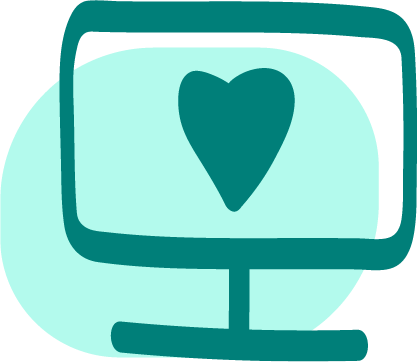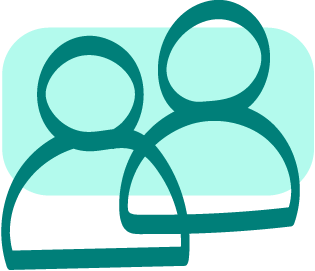Caregivers
This page is sponsored by EquipThis page is sponsored by
Learn more about Equip’s virtual, evidence-based treatment or schedule a call with their team today.
Support for Eating Disorder Caregivers
Eating disorders thrive in secrecy and heal in community. This means that when a person is recovering from an eating disorder, the support of their loved ones is vital. In fact, research shows that having the support of friends, family, and others can lead to better outcomes and improve a person’s odds of achieving lasting recovery.
But supporting a loved one through eating disorder treatment is hard. Sometimes, the recovery journey can be just as hard (or harder) on loved ones as it is on the person struggling. Because of this, caregivers need support, too.
Read on to learn more about the role of caregivers in eating disorder recovery and how you can prioritize your own well-being as your loved one gets better.

How family can be involved in treatment
Eating disorder treatment works better when loved ones are involved. That can look different from person to person and family to family, but there are a few common ways that caregivers can be incorporated into treatment.
- Emotion-focused family therapy (EFFT): EFFT is based on emotion-focused therapy (EFT), an approach that focuses on the role of human emotion in making psychotherapeutic changes and progress. EFFT is specifically tailored to caregivers and how they can help support their loved ones’ mental health.
- Family-based treatment (FBT): Considered the gold standard for eating disorder treatment in young people, FBT is a research-based approach in which a patient’s family members are tasked with helping them normalize eating habits and stop disordered behaviors.
- Other options: Families and other loved ones can also be involved in less formalized ways. That might mean attending group therapy sessions, becoming educated about eating disorders and how to treat them, talking to a dietitian to unlearn any harmful beliefs about food or eating that might perpetuate the eating disorder, and more.

How to get started
If someone you love is struggling with an eating disorder, it can feel scary and overwhelming to try to help—but that help can make a world of difference. By encouraging your loved one to work toward recovery, you can change their life for the better, or maybe even save it.
Here are some resources to support you as you help your loved one get started with treatment:
- Support groups for family and friends. Connecting with others in similar situations can be a powerful way to make this hard journey less isolating. You’ll have a safe place to share your challenges and triumphs, get real-life advice, and remember that you are not alone. EDF offers several virtual support groups for friends and family, which you can find here.
- Educational videos. YouTube can be a trove of helpful information to learn more about eating disorders and how to help someone struggling. Both the EDF YouTube channel and the Equip YouTube channel have a large library of videos on many different eating disorder-related topics.
- Recommended reading. So many helpful words have been written about eating disorders and how to best support someone who is struggling. EDF has a curated list of recommended books, and we also invite you to explore some of these blog posts from Equip:

The role of mentorship
Research has shown that mentors can be a crucial piece of the recovery puzzle. For patients, mentors are living proof that lasting recovery is possible, and provide much-needed empathy and advice during tough moments on the journey.
For caregivers, mentors can be equally important. Supporting a loved one through the ups and downs of treatment can be tough, and being able to talk to someone who has been there can be a game-changer. Caregiver mentors are a listening ear, a source of actionable advice, and a rock to lean on when things are hard.
Both Equip and EDF know how important mentorship is for caregivers.
- At Equip, each patient’s care team includes a Family Mentor who has helped a loved one through recovery and can provide support to families throughout treatment.
- At EDF, our Caregiver Mentorship Program matches caregivers with someone who has been in their shoes and can provide as-needed support. Learn more about EDF’s Caregiver Mentorship Program and how to request a mentor.
